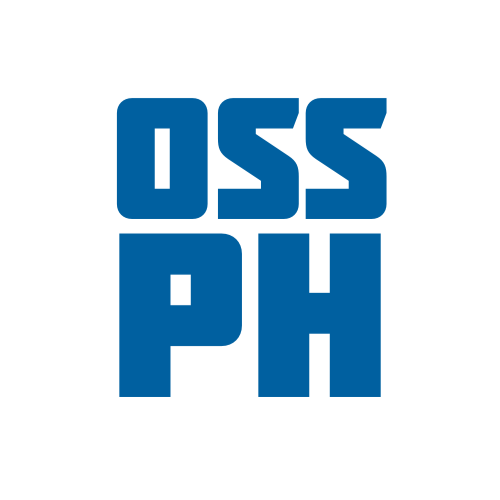10 Reasons Why Developers Should Use Linux
Why is it that Linux always comes up when it comes to software development? Here are some reasons why you should use Linux as a developer.

Linux is a versatile and widely used operating system in the technology world, with numerous advantages for developers. Because of its open-source nature and extensive development tools, as well as its customization, security, and community support, Linux is an excellent choice for developers looking for a reliable platform for their projects. In this article, we'll look at ten reasons why developers should use Linux and why it's such a popular choice. This article will explain why Linux is such a valuable resource for developers, whether you're new to the field or an experienced programmer.
1. Linux is free and open source
Linux is a popular choice among developers due to its key feature of being free and open-source. This means that the operating system's source code is open to the public and can be freely viewed, modified, and distributed. This transparency fosters a global collaborative developer community, which leads to platform improvement and innovation on a continuous basis. Developers can customize the system to meet their specific requirements while also contributing to the community by sharing their improvements. The open-source nature of Linux also promotes transparency and security by allowing potential flaws to be identified and addressed as soon as possible.
2. Linux has a powerful command-line interface
One of the most significant advantages of Linux for developers is its powerful command line interface (CLI). The CLI provides developers with a high level of control and precision, enabling them to complete a variety of tasks quickly and efficiently. Unlike graphical user interfaces (GUIs), which require multiple mouse clicks and menu navigation, the CLI interacts with the system through text-based commands. This method allows developers to easily complete complex tasks like software installation, system configuration, and file management. In addition, the CLI supports automation and scripting, which can help developers save time and increase productivity. Furthermore, the CLI is lightweight and consumes fewer system resources, making it an excellent choice for developers looking to improve their workflows.
3. Linux is secure
Linux comes with a number of security features that help protect against a wide range of security threats. Linux, for example, uses user-based permissions and access controls to ensure that users only perform actions for which they have been granted permission. In addition, Linux has a secure boot process that ensures only trusted code is executed when the system boots. Furthermore, Linux supports a number of secure communication protocols, such as HTTPS and SSH, which enable secure remote access to the system. Lastly, Linux includes a variety of security-related tools and utilities, such as firewalls, intrusion detection systems, and security-focused software packages, all of which help to prevent malicious attacks.
4. Linux is highly customizable
Linux is a popular operating system among developers because of its high level of flexibility and control. It gives developers complete control over the machine, allowing them to customize it to their specific needs and experiment with new approaches. Developers can use Linux in any way they want, from changing the entire desktop environment to switching to a completely new Linux distribution. Popular desktop environments include GNOME, KDE, and Cinnamon, each with its own look and feel. Linux also supports a wide range of shell systems, allowing developers to choose the one that best suits their needs.
5. Linux receives consistent updates
Linux is well-known for its frequent and stable updates, which are extremely beneficial to developers. This means that developers can regularly anticipate new features, bug fixes, and security patches. The update process is also designed to be smooth and non-disruptive in order to minimize downtime and ensure that systems remain stable even after updates have been installed. Long-term support (LTS) releases of Linux distributions typically provide updates for a longer period of time, allowing developers to confidently plan and manage their systems. As a result, Linux is a reliable and secure platform for developing, testing, and deploying software.
6. Linux offers a wide range of options
Linux provides numerous distributions, or distros, each with its own set of features and capabilities for developers. This wide range of options enables developers to select the distro that best meets their requirements, whether they are looking for a highly customizable operating system or a distro optimized for a specific use case. Developers can also select from a variety of specialized distros designed for specific applications such as security or gaming. With so many options, Linux offers developers the flexibility and choice they require to find the best operating system for their needs.
Here are some of the developer-friendly distros :
- Ubuntu - Ubuntu is a user-friendly Linux distro with a large community of developers, making it an excellent choice for new developers. It comes pre-installed with a variety of development tools and libraries, including Python, Ruby, and Git.
- Fedora - Fedora is a community-driven Linux distro that provides advanced technology and developer-friendly features, making it an excellent choice for experienced developers. It includes a comprehensive set of programming tools and libraries, making it an ideal operating system for software development.
- Debian - Debian is a reliable and secure Linux distribution that is ideal for developers seeking stability. It includes a comprehensive set of programming tools, compilers, and libraries, making it a popular choice for developers looking for a capable operating system for their software development projects.
- Linux Mint - Linux Mint, based on Ubuntu, is a user-friendly Linux distro that is easy to install and use, with a wide range of pre-installed applications and tools, including programming editors and software development kits, making it an excellent choice for developers of all skill levels.
- Arch Linux - Arch Linux is a minimalist Linux distro that provides complete system control as well as the latest development tools and libraries, making it a great choice for advanced developers who want complete control over their systems.
7. Linux has a strong community support
Linux has an active developer and user community that contributes actively to its development and support. Because of the strong community support, Linux is an appealing choice for developers who require reliable and accessible support. The Linux community is well-known for having a large knowledge base that is easily accessible through online forums, mailing lists, and other resources. In addition, the Linux community provides a wealth of tutorials, documentation, and guides to assist developers in becoming acquainted with the operating system and its various components. Furthermore, because Linux is open-source, developers can gain access to the source code and contribute to its development, potentially leading to new features, bug fixes, and performance enhancements.
8. Linux is lightweight
Linux is designed to be small, efficient, and fast, making it suitable for a wide range of applications including embedded systems, cloud computing, and low-end hardware. Because of Linux's modular architecture, developers can choose only the components they need, reducing the amount of memory and storage needed and allowing Linux to run on devices with limited resources. Furthermore, Linux is designed with a small memory footprint, which means it consumes fewer system resources, allowing more room for other processes. As a result, the system is extremely responsive and well-suited to resource-constrained environments.
9. Linux is developer-friendly
Linux is a developer-friendly operating system that supports a wide range of programming languages. Linux provides a stable, reliable, and secure development environment, and it is widely used by developers for a wide range of projects, from web development to scientific computing. Many popular programming languages, such as C, C++, Java, Python, and others, are supported by the platform. This means that developers have a wide range of tools and libraries at their disposal to aid in their work, and they can easily switch between languages depending on the requirements of their project. Furthermore, Linux includes a number of development tools, such as integrated development environments (IDEs), text editors, and version control systems, to help developers in the creation, testing, and debugging of code. Developers can easily contribute to Linux and share their work with the larger community because it is open-source. The developer-friendly features of Linux make it an excellent platform for all types of development projects.
10. Linux is everywhere
Linux is widely used and can be found on a variety of devices and platforms, such as small embedded systems, large-scale servers, and supercomputers. Linux is used in a wide range of applications, including consumer electronics, mobile devices, industrial automation, and high-performance computers. It powers many smartphones and smart TVs, as well as supercomputers used in scientific research and data analysis. It is also widely used in industrial automation systems in the manufacturing, transportation, and energy generation industries. The ability of Linux to run on a wide range of hardware architectures has increased its popularity, providing developers with a consistent platform for developing applications that can be used across multiple devices.
Conclusion
There are numerous reasons why developers should use Linux. From its flexibility and compatibility with various programming languages to its open-source nature and powerful command-line interface, Linux provides developers with an efficient and reliable platform for their work. Furthermore, its strong security features, low resource usage, and widespread community support make it an excellent choice for development projects of all sizes. Developers can optimize their workflow, increase productivity, and build better software by leveraging the benefits of Linux. Finally, Linux remains an essential tool for any serious developer looking to stay ahead of the competition.
Please share if you found this article useful. Feel free to respond if you have any thoughts, feedback, or comments.
Until next time, happy coding and learning! Cheers!
About the author
Paula Isabel Signo is a technical writer at OSSPH and a web developer at Point One. In her free time, Paula contributes to various open-source projects, volunteers in the community, and shares her knowledge by writing articles and tutorials. Connect with Paula here to learn more about her work and interests.

